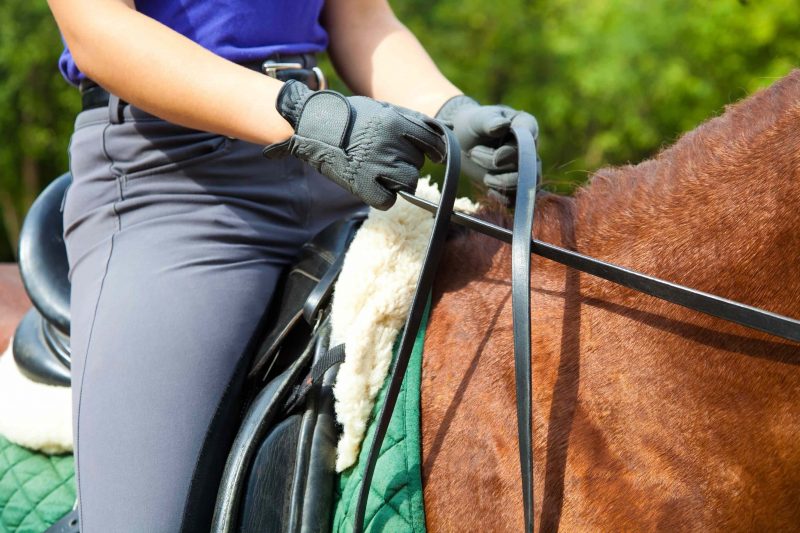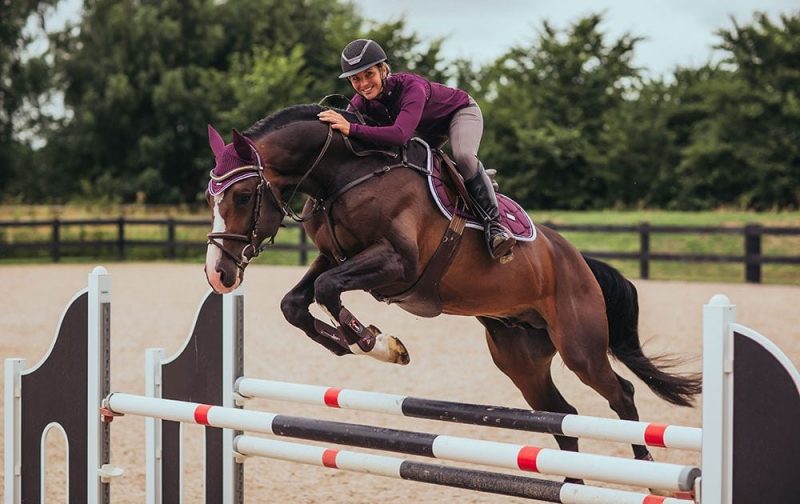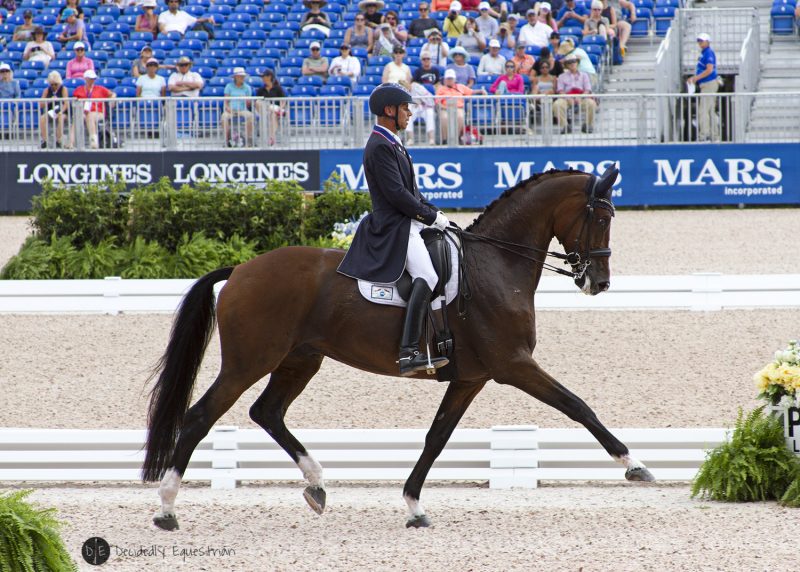Contents
- 1 Mental Preparation Techniques for Horse Riders
- 2 Improve Your Equestrian Performance
- 3 Tell us about the sports performance log
- 4 Q&A:
- 4.0.1 How can mental preparation techniques improve a rider’s performance?
- 4.0.2 What are some mental preparation techniques that riders can use?
- 4.0.3 Can mental preparation techniques also help in dealing with the emotions of the horse?
- 4.0.4 Are mental preparation techniques essential for every equestrian discipline?

If you are an equestrian, you know that horse riding is more than just a physical activity. It requires not only strength and skill, but also a strong mental focus. To truly excel in this sport, you need to be able to keep your mind calm and focused, even in the most challenging situations. This is where mental preparation techniques come into play.
Many riders underestimate the importance of mental preparation, focusing solely on physical training. However, top-tier equestrians know that one cannot perform at their best without having a solid mental game. Whether you are competing in shows or just enjoy riding for leisure, developing mental resilience can improve your riding experience and help you achieve your goals.
So how can you improve your mental game as a rider? Here are some effective techniques that elite riders use to stay calm, focused, and mentally prepared.
Visualizing Success: One technique that many riders find helpful is visualizing their success before they even start the ride. By visualizing yourself performing well and achieving your goals, you are programming your mind to believe in your ability to succeed. This can help boost your confidence and reduce any negative thoughts or self-doubt that may arise.
Analyzing and Learning from Previous Rides: It’s important to analyze and learn from your previous rides, especially if you encountered any challenges or made mistakes. Take the time to reflect on what went wrong and why. By analyzing your rides, you can identify recurring patterns or mistakes and come up with strategies to overcome them in the future.
Staying in the Present Moment: One common mistake riders make is thinking too far ahead or dwelling on past mistakes. It’s easy to get caught up in thoughts about what may happen in the future or what went wrong in the past. However, this can distract you from the present moment and prevent you from performing at your best. To stay mentally focused, try to bring your attention back to the present moment whenever you notice your mind wandering.
Maintaining a Positive Attitude: It’s natural to feel nervous or stressed before a ride, especially if you are competing or facing a challenging course. However, it’s important to remember that your mindset can greatly impact your performance. Instead of allowing negative thoughts to take over, try to maintain a positive attitude. Remind yourself of your abilities and focus on the things you can control, rather than dwelling on the things you cannot.
Building a Routine: Developing a pre-ride routine can help you get into the right mindset before each ride. This routine can include activities that help you relax and focus, such as deep breathing exercises, stretching, or listening to calming music. By creating a routine, you signal to your mind and body that it’s time to shift into a focused and calm state.
Seeking Professional Guidance: If you are struggling with your mental game or find it challenging to stay focused and calm during rides, seeking professional guidance can be helpful. A sports psychologist or mental coach who specializes in equestrian sports can provide you with personalized advice and techniques to improve your mental preparation. They can help you develop strategies to cope with stress, manage pressure, and stay mentally strong in any situation.
Remember, mental preparation is just as important as physical training when it comes to horse riding. By incorporating these techniques into your routine, you can improve your mental game, enjoy your rides, and ultimately achieve better results.
Mental Preparation Techniques for Horse Riders
Being a horse rider can be an exciting and rewarding experience, but it can also come with its fair share of challenges and pressure. To perform at your best, it’s important to not only work on your physical abilities but also your mental preparation. Mental preparation techniques can help you stay focused, confident, and calm when facing the demands of competition and training.
The Role of Mental Preparation
Many riders may feel disheartened or stressed when they encounter problems or difficulties with their horse. However, a good rider understands that these challenges are a natural part of the training process and should be seen as opportunities to improve. Mental preparation helps riders build the mental resilience and problem-solving skills needed to effectively deal with any issues that may arise.
One of the first steps in mental preparation is to identify your own needs and set realistic goals for both yourself and your horse. By setting achievable goals, you avoid putting unnecessary pressure on yourself and your horse. It’s also important to remember that every horse is different, and what worked for one horse may not work for another. Taking the time to get to know your horse’s individual needs and abilities will help you tailor your training and mental preparation techniques accordingly.
Techniques for Mental Preparation

There are many techniques that riders can use to mentally prepare themselves for riding success. Here are a few examples:
- Visualization: Visualizing a successful ride before getting on your horse can help you stay focused and confident. Imagine yourself and your horse performing at your best, with everything going smoothly.
- Positive self-talk: Use positive affirmations and encouragement to keep yourself motivated and mentally strong. Remind yourself of your skills and past achievements to boost your confidence.
- Deep breathing and relaxation techniques: Breathing deeply and practicing relaxation techniques before and during your ride can help you stay calm and centered.
- Mental rehearsal: Before competition or a challenging training session, mentally rehearse the ride in your mind. Visualize how you will tackle different obstacles and situations, and imagine yourself handling them with confidence and skill.
With any mental preparation technique, it’s important to stay focused and present in the moment. This means letting go of any distractions or negative thoughts that may arise and staying fully engaged with your horse and the task at hand.
Seeking Support and Advice
If you’re struggling with your mental preparation or encountering difficulties in your riding career, don’t hesitate to seek support and advice. Talking to a coach, trainer, or sports psychologist can provide you with valuable insights and strategies for managing the mental aspects of riding. Remember, you’re not alone, and there are resources available to help you improve and succeed.
Maxime Chataignier, a well-known equestrian, once gave this advice: “The horse doesn’t care how much you know until he knows how much you care for him.” This reminds riders that building a strong relationship with their horse is just as important as the mental and physical preparation. Showing care and understanding for your horse’s needs can go a long way in creating a successful partnership.
In conclusion, mental preparation plays a crucial role in a rider’s performance. By incorporating these techniques and seeking support when needed, you can better prepare yourself mentally for the challenges and pressures of riding. Remember to stay focused, confident, and dedicated to your training, and you’re likely to see improvement in both your riding and your horse’s performance.
Improve Your Equestrian Performance
When it comes to equestrian sports, preparation is key. Elite riders know that the mental aspect of the sport is just as important as the physical. They understand that their thoughts, preparation, and confidence play a significant role in their performance.
Before stepping into the arena, a rider needs to be mentally prepared. Visualisation is a powerful tool that can help riders imagine themselves performing at their best. By mentally rehearsing the movements and jumps they want to execute, riders can build confidence and focus.
It’s important for riders to log their experiences and thoughts before a competition. By keeping a journal, riders can track their progress and identify areas for improvement. This allows them to reflect on their performance and make any necessary adjustments for future shows.
Mental preparation also involves dealing with any emotional challenges that may arise. Horse riding can be a demanding sport, and riders may experience frustration or disappointment. However, it’s crucial to not let these emotions dishearten or pick away at their confidence. Instead, riders should learn from their mistakes and use them as motivation to do better in the next ride.
Building a Strong Mental Foundation
When it comes to mental preparation, there are a few key techniques that riders can utilize:
- Thought control: Riders should pay attention to their thoughts and ensure they remain positive and focused.
- Confidence boost: Engaging in positive self-talk and reflecting on past successes can help boost confidence in the rider’s abilities.
- Visualisation: By creating vivid mental images of successful rides, riders can enhance their focus and prepare their mind for the actual performance.
- Role-playing: Acting as if the rider is already a successful and accomplished equestrian can help create the mindset necessary for success.
Remember, mental preparation is an ongoing process. It’s important for riders to continuously work on their mental game to improve their equestrian performance. By incorporating these techniques into their training routine, riders can bring out their best performance possible and truly enjoy the sport they love.
Tell us about the sports performance log

One of the most effective ways to improve your equestrian performance is by keeping a sports performance log. This log is a written record of your thoughts, feelings, and experiences related to your riding and horse shows. By making a habit of properly documenting your exercise and competition experiences, you can develop a more focused and mentally prepared mindset.
When it comes to riding, it’s crucial to stay mentally prepared and focused. The sports performance log helps you analyze recurring patterns, identify areas of improvement, and track your progress over time. It acts as your reference point and helps you remember the things you knew worked for you in the past.
One technique that many elite riders use is visualizing their horse’s performance before a show. They visualize the perfect ride, envisioning every movement and obstacle. By doing so, they develop a clear picture in their mind of what needs to be done during the actual competition.
Pre-performance and pre-show thoughts
The sports performance log allows you to jot down your pre-performance and pre-show thoughts, helping you stay calm under pressure. It’s common to feel stressed and have negative thoughts before a competition, but by writing them down, you can analyze them objectively and work on turning them into positive motivations.
By documenting your thoughts and feelings, you can identify patterns of pressure and anxiety and develop strategies to overcome them. For example, if you noticed that you tend to feel stressed when there is a particular jump or obstacle, you can work on mentally rehearsing that specific situation to build confidence and reduce anxiety.
Maximizing the log’s benefits
The sports performance log should be based on the rider’s needs and what they want to achieve. Some riders find it helpful to include details like the horse they were riding, the weather conditions, and any specific challenges they faced. This level of detail can help you analyze your performance and understand how external factors may have influenced your ride.
It’s important to remember that the sports performance log is not just about capturing your thoughts and feelings. It’s also about reflecting on your experiences and using them as a tool for improvement. By regularly reviewing the log, you can identify areas where you made progress and areas where you need to focus your training.
Although the sports performance log takes time and effort to maintain, it is an invaluable tool for any rider who wants to improve. So, start keeping a log today and see how it can help you develop a positive mindset, focus on your goals, and achieve equestrian excellence!
Q&A:
How can mental preparation techniques improve a rider’s performance?
Mental preparation techniques can improve a rider’s performance by helping them stay focused, confident, and calm. These techniques, such as visualization, positive self-talk, and breathing exercises, can help riders manage their emotions and reduce anxiety, allowing them to perform better and make quick decisions in the saddle.
What are some mental preparation techniques that riders can use?
There are several mental preparation techniques that riders can use to improve their equestrian performance. Some of these techniques include visualization, where riders imagine themselves successfully completing their ride, positive self-talk, where riders use affirmations to boost their confidence, and breathing exercises, which help riders stay calm and focused. Other techniques include goal setting, mental rehearsal, and developing a pre-ride routine.
Can mental preparation techniques also help in dealing with the emotions of the horse?
To some extent, mental preparation techniques can help deal with the emotions of the horse. When a rider is calm, focused, and confident, it can have a positive impact on the horse’s emotions. Horses are sensitive animals that can pick up on their rider’s energy and emotions. If a rider is anxious or tense, it can lead to the horse becoming anxious or tense as well. Therefore, by using mental preparation techniques, riders can create a more positive and harmonious environment for their horse.
Are mental preparation techniques essential for every equestrian discipline?
Yes, mental preparation techniques are essential for every equestrian discipline. Whether you’re riding dressage, show jumping, or competing in eventing, mental preparation plays a crucial role in a rider’s performance. The ability to stay focused, confident, and calm under pressure is essential for all riders, regardless of their discipline. Mental preparation techniques can help riders overcome nerves, improve their decision-making skills, and perform at their best in any equestrian discipline.
References:
Chataignier, A. (2019). The Role of Mental Preparation in Equestrian Sports. The Equestrian Journal. Retrieved from www.equestrianjournal.com/mental-preparation
Keep, S. (2018). Improving Equestrian Performance Through Mental Training. Equine Performance Magazine, 16(2), 42-47.
